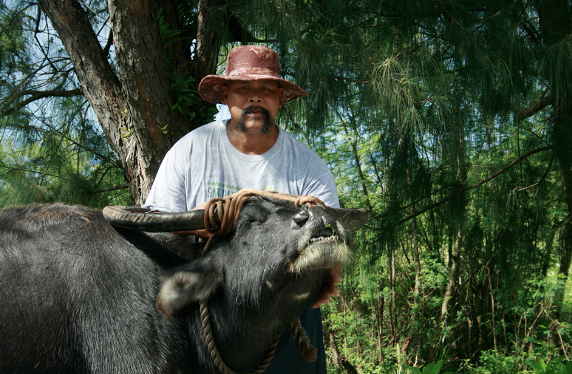
On this year’s Mes CHamoru, or ‘Chamorro Heritage Day’ native Guam islanders asked people to celebrate by learning the CHamoru language.
Despite changing over time, the CHamoru language links today’s islanders with the Chamorro people who settled on Guam thousands of years ago and is considered endangered as of 2023.
An overwhelming majority of the CHamoru people are not able to speak their native language, largely due to CHamoru language oppression in the 20th century, perpetuated by the Navy and sectors of the government of Guam. The use of the CHamoru language was banned in many public spaces for several decades and as recently as the 1970s, it was still a punishable offence to speak CHamoru in Guam’s schools. The introduction of baseball to Guam also led to a ban on CHamoru language on baseball fields.
Finally in1974 the Guam Legislature made CHamoru an official language of the island alongside English, ensuring the rights of native speakers and dissolving punishment related to the language. It is still considered a powerful and historically radical decision.
Many CHamoru people advocate for acknowledging and recording problematic and colonial history, but choosing not to feel bound by it when moving forward.
However recognition of the language alone has not managed to pull CHamoru out of its endangered status and the number of speakers continues to decline. Young speakers of the language appreciate their ancestors’ experience of oppression, but admit it may be hard to teach and revitalize a language that was banned for so long.
Author Michael Lujan Bevacqua wrote in the Guam Pacific Daily News “Although there are no longer any formal punishments for speaking one’s native language, CHamorus in increasing numbers following World War II just stopped using the language with those younger than them.” The platform Learning CHamoru is dedicated to supporting native speakers and CHamoru language learners. The growing community has free resources and multimedia learning tools, created in conjunction with the University of Guam and the Commission on Chamoru Language.





